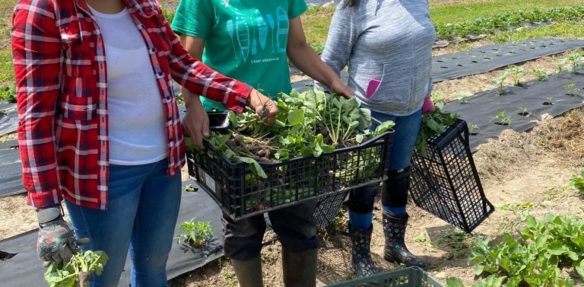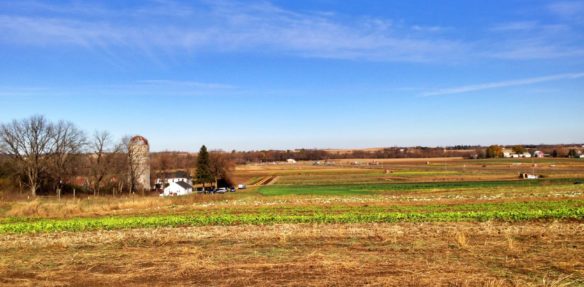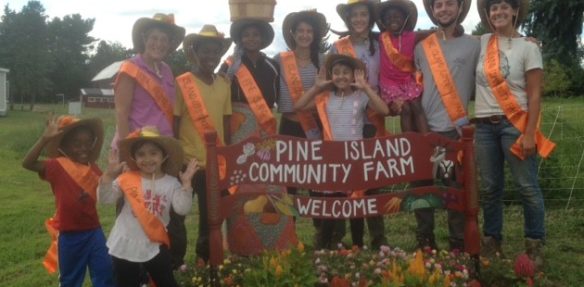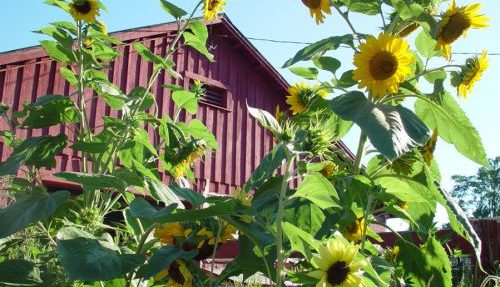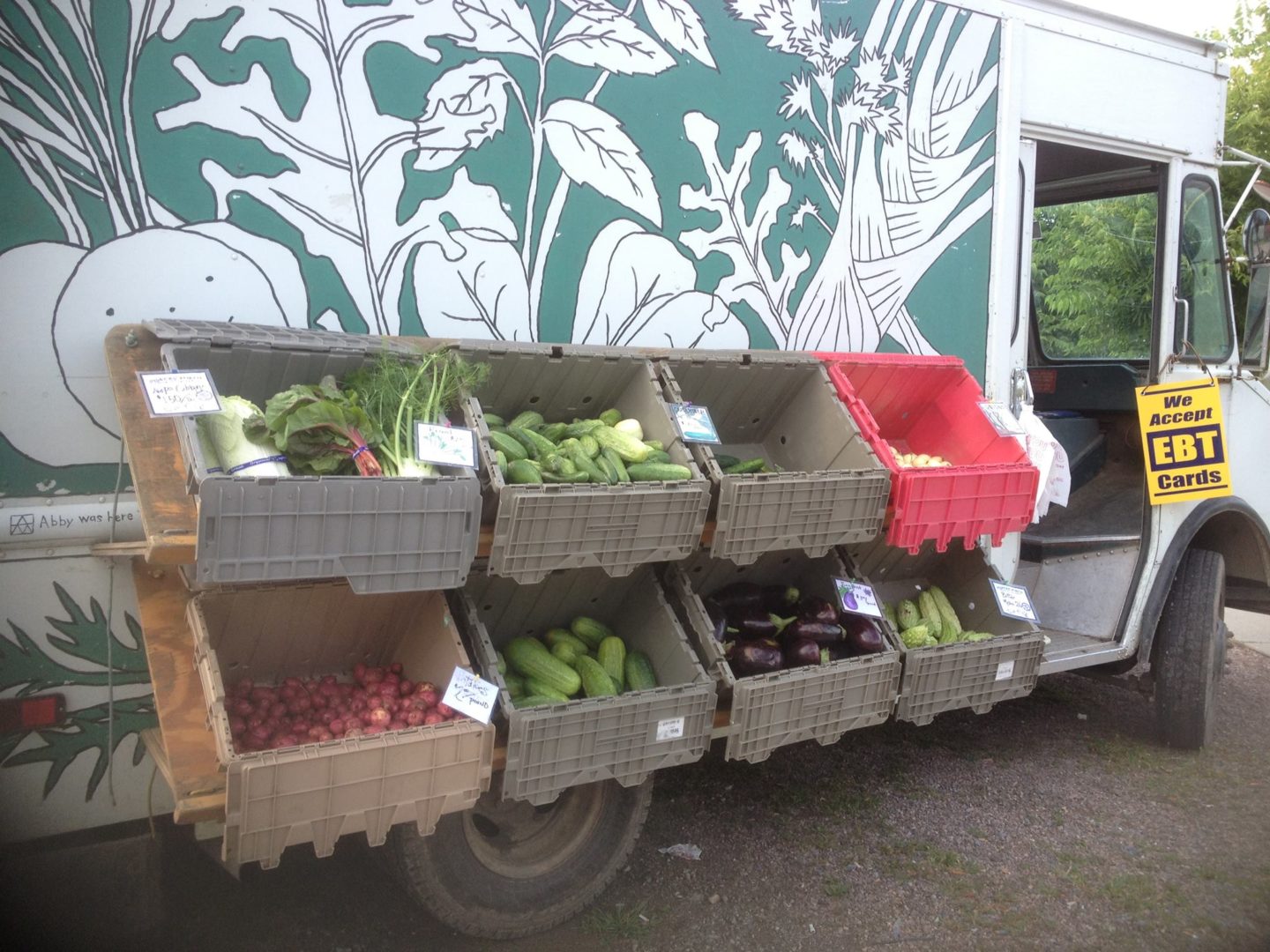
“We are able to pool resources both as a collective and as an equipment cooperative at the Intervale. We are able to afford so much more.”
– Hilary Martin
Background
Diggers’ Mirth is an 11-acre collaborative farm located on the Intervale, a farm incubator in Burlington, Vermont. The farm uses two-thirds of its land for growing mixed vegetables and salad greens, and one-third for cover crops.
Hilary Martin, one of the “diggers,” as they call themselves, says she feels lucky to have been invited into the collective. Hilary majored in environmental studies at the University of Vermont, focusing on agricultural development and agrarian communities. Wanting to make a tangible difference in the agricultural system, Hilary became interested in farming. After college, she started working as a farm hand on several farms around Vermont. She eventually ended up at Intervale Community Farm. Soon after, she was invited into the Diggers’ Mirth collective, having met them through working on the Intervale.
The Intervale is a farm incubator in Burlington, VT that leases land, equipment, and infrastructure to small independent farm businesses. The goal of the Farms Program on the Intervale is to remove start-up barriers that typically challenge new farmers, such as access to land, training, capital, markets, and equipment.
The Business Structure
Formally, Diggers’ Mirth is an LLC. However, its farmer-members describe themselves as a “collective” and consider their method of farming to be truly collaborative. Prior to 2007, the farming business was a partnership by default, but the Diggers decided to formalize to protect the members from liability. They chose an LLC because it was the most similar to their previous arrangement in terms of filing taxes and business structure. “We wanted to be a cooperative but we didn’t want to deal with the differences in filing taxes and creating a board. We liked how we were but we didn’t want to be personally liable,”1 Hilary explains. Each of the five Diggers is an equal member of the LLC. Even if each member works different hours, their opinion and decision-making power is equal.
In terms of work allocation, “historically, everyone has done everything,” explains Hilary. “We all share decision making and almost all roles on the farm have been shared by all members.” The members rotate jobs like tractor work, weeding, repairs, marketing, washing, packing, and deliveries. “Even wholesale calls – we divvy it up by days of the week. We share responsibilities so the accounts get to know all of us,” Hilary says. There are a few exceptions. For example, seeding has always been the job of a particular person (or two) to ensure consistency in the seeding process. Historically, bookkeeping was also done by just one person, given the unique expertise it requires. (They now hire a non-member bookkeeper.)
The LLC’s Operating Agreement reflects and encourages the members’ collaborative spirit. The operating agreement lays out issues such as how they get paid, the payout system upon an LLC member’s exit, and the procedure for a person to join the collective. When asked how the members resolve disputes, Hilary explains, “I imagine that there is something in there about disputes but honestly, we haven’t really ever had a dispute that we couldn’t work out on our own. The only examples that I can think of are so minute that it’s not even worth talking about. Like, should we grow 4 or 6 beds of watermelon?” Hilary explains that this might not be typical of all collaborative farming models but “the interpersonal dynamics on the farm are really good. We are friends. We tend to work really well together.”
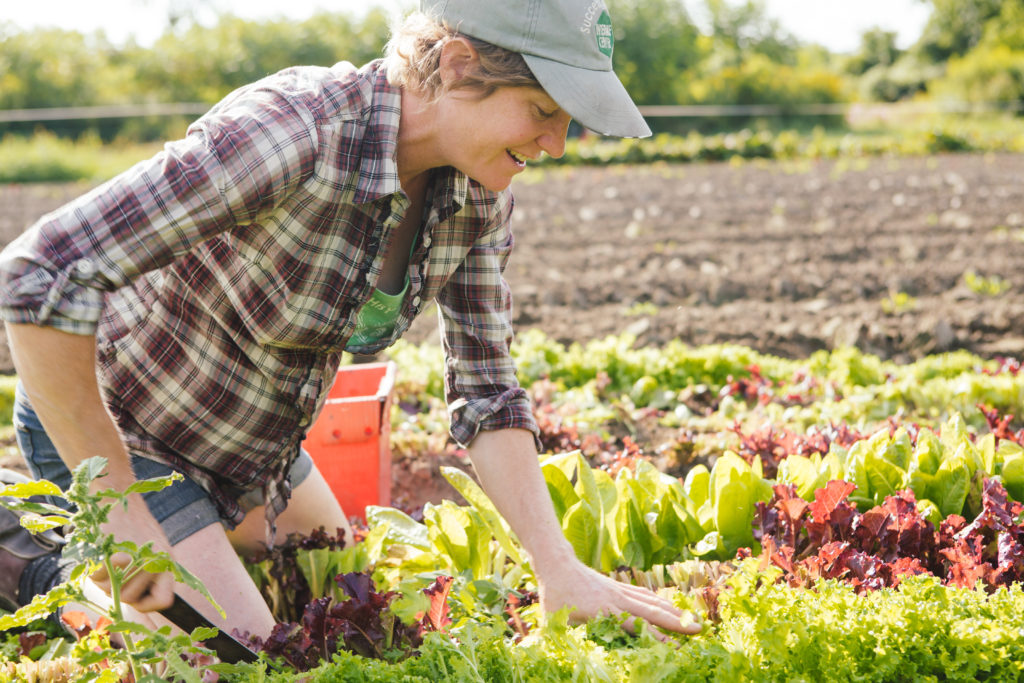
Compensation
In terms of compensation, the members divide annual profits based on their hours worked. As they work, each farmer keeps track of his or her own hours and submits them. Then, at the end of the season, they split their net profit in proportion to the number of hours each farmer worked. For example, if one farmer worked 25% of the total hours worked by all farmers, he or she receives 25% of the net profits. The Diggers also have ways to ensure members have access to cash flow throughout the year. For example, according to Hilary, “we can get an advance once we have sufficient funds, sometime after mid-July of each season, and that get subtracted [from distributions] at the end of the year.”
The ultimate intent and result of Diggers’ Mirth’s payment system is that each farmer makes the same hourly wage, regardless of seniority. “It is important to us as a collective that we get paid the same hourly wage because we are all showing up with the same amount of energy and commitment,” Hilary says. The result is also that the hourly wage can vary each season, and is undetermined until the season’s end. Hilary explains that this approach has both advantages and disadvantages. In terms of advantages, because the Diggers are uncertain as to what their profit will be each season, they are less likely to overextend their finances. As a result, if unexpected expenses arise – for example, if the property floods – the members have minimized their ultimate loss or debt. The primary disadvantages are, of course, that each member only gets paid once at the end of the year, and the payment amount is uncertain.
Upon the exit of an LLC member, Diggers’ Mirth honors seniority through a payout system, one component of which depends on how many total hours each farmer has worked for the farm. The operating agreement states that the leaving member (called the “disassociated member”) will receive, among other assets:
“[A] percentage of the depreciated capital assets of the company as shown on the company’s balance sheet as of the end of the prior fiscal year attributable to the dissociated member. The percentage applicable to the dissociated member is the percentage of hours the dissociated member has worked for the company in relation to the total hours all members, past and present, have worked for the company.”
This payout system is also the way the members build equity in the farm. Each member is required to contribute $1,500 upon joining the collective. When a member decides to leave the collective, he or she will be bought out at a price determined by several components, including the number of total hours contributed to the collective (described above), the amount of the member’s initial capital contribution, and what percentage of the farm’s crops and/or accounts the leaving member will take. The system, therefore, works as a kind of “buy-sell” agreement and the operating agreement describes how assets are allocated when a member leaves. This payout system highlights the importance of anticipating that people may want to exit the business at some point and providing a process for it that is agreed upon at the outset.
However, as far as equity-building, “that is pretty much it,” says Hilary. Although Diggers’ Mirth owns a tractor and a truck, most of the equipment they use is owned by the Intervale and because the Diggers lease the land from the Intervale as well, there aren’t many options for equity-building. Hilary explains that most of the equity is in the business itself and the brand. However, the Diggers have created other options as well; for example, if a member leaves to start his or her own farm, that member can take a portion of the crops and accounts.
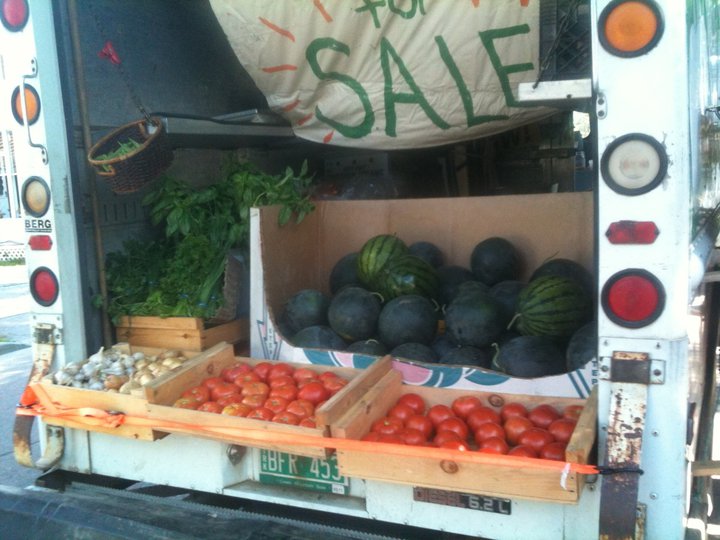
Maintaining Collaboration Despite Change
As Diggers’ Mirth has grown and evolved, its members have worked to maintain their collaborative approach to farming. For example, over time, according to Hilary, its members have become “more dispersed as everyone has had kids or gone back to school or gotten jobs.” Nonetheless, “it’s always been really important to us that the cooperative model accommodates people’s lives outside the farm,” Hilary explains. Thus, at the end of each year, all of the Diggers sit down to evaluate the past year and make a crop plan for the following year. Each member decides how much they want to work. For example, someone might only want to work until 3 p.m. on certain days, while someone else might only want to work on specific days of the week. Once they determine how much each member will work, they decide how many additional people Diggers’ Mirth will need to hire. During this meeting, they also set up a schedule for the season which lays out who will perform each job, and when. For example, they have a schedule for washing vegetables that requires all of the Diggers to take turns with the task. Hilary stresses that, despite their growth, everyone continues to share most of the jobs. “Nobody wants to be doing one job; we want to keep it fresh,” she says. However, the members also try to do the work that they are most interested in and excited by. “Whoever gravitates towards which job ends up doing it,” Hilary explains.
Of course, there are always ways the Diggers can improve. “We are trying to get better at identifying everything everyone does. Communicating is a big thing. We need to get better at communicating because not everyone is around and decisions get made on the fly and not everyone knows about them,” says Hilary. To increase communication and collaboration, they’ve begun taking a field walk together every Monday. On their walk, they discuss what tasks need to be completed and how they can improve going forward. “We continue to evolve,” Hilary says.
Farming On An Incubator
For the farmers at Diggers’ Mirth, farming on a farm incubator has both advantages and disadvantages. On the upside, sharing resources makes farming more affordable. Additionally, as Hilary says, “the community is amazing. If I have questions, I have people right there that I can ask about stuff.” Farmers on the Intervale provide each other emotional support, as well. “It’s nice to be farming with seven other farm businesses that are doing the same thing. I never feel isolated. If I were trying to do this on my own, I might feel beaten down,” says Hilary.
One disadvantage of farming on an incubator, however, is that the farmers may not be able to choose the specific plot of land to farm. “Being part of a nonprofit that has its own agenda and goals means that we don’t get our pick of what fields we want. You can apply for land if it’s available but you won’t necessarily get it,” explains Hilary. She says that if the Diggers had their choice, they would farm on fields that were on higher grounds in order to avoid flooding.
Equipment sharing comes with its own challenges as well. For example, a farmer may want to use a piece of equipment when someone else is planning on using it at the same time. “You have to plan ahead; you can’t just use it whenever you want,” says Hilary. Another problem is that when multiple parties are using equipment, farmers run into “the tragedy of the commons – equipment gets used up faster.” However, according to Hilary, the farmers on the Intervale “figure out a rhythm” and the equipment sharing schedule works itself out. “For example, every Tuesday, Diggers’ Mirth does field work so we use the equipment a lot then. Every farm has its own schedule. There is a calendar on a white board. It goes per week,” Hilary explains.
Although purchasing land off of the Intervale is something that the Diggers have discussed because of the frequent flooding on their current parcel, it isn’t something the Diggers have had much interest in. She explains that it seems like the members are invested in their lives in Burlington; they have kids in the school system and own homes. However, because they grew their business on rented land and shared equipment, Diggers’ Mirth has few assets. If they were to move off the Intervale, they would be starting from scratch. “We don’t necessarily have the funds or the energy [to move],” says Hilary. A few years ago, they tried renting a piece of land in Charlotte, Vermont, but ultimately, they decided not to renew the lease. “It just didn’t fit into our schedule. Or into our culture. It was one of the five fields that we were managing that year, four of which were in the Intervale. It became difficult to prioritize going there, especially as the drive there and back took over an hour,” Hilary says.
Going Forward
Going forward, Hilary hopes that she and the other Diggers can continue to earn a livable wage, have a collectively-managed business, and grow good produce. The farmers also hope to continue to serve their neighborhood and the city’s low-income community. To achieve these goals, Hilary highlights that the farmers of Diggers’ Mirth must continue to “fine tune how the collective works in a way that makes it sustainable over time,” and to grapple with the challenge of flooding. “I feel like climate change is the biggest obstacle to us. We have pretty low land and flooding is a problem – so land security,” says Hilary.
Ultimately, farming collaboratively works well for the farmers on Diggers’ Mirth. Hilary attributes this to their personalities and the personal preferences of the members. “Some people would find it difficult to share in decision making. For me, it’s how I prefer to work. We are all motivated by each other. We are happier showing up and knowing that the business incorporates five minds and not just one. It feels healthier in terms of personal health,” says Hilary. The collaborative approach also relieves Hilary from feeling that the success of the farm is riding on her alone. “I show up and I’m like, okay, my four friends and I are going to figure out the day. I feel like we make smarter decisions.” However, Hilary cautions that such collaborative farming might not be for everyone. Conflicting opinions and alternative suggestions work well for them, “but could be really annoying for some people,” she warns.
Additionally, joining a collective has been instrumental in Hilary’s journey to land access. “I’m not sure I would be a farmer if not for the collective,” Hilary says. She explains that she might have been too intimidated. Farming can be stressful and Hilary thinks if she weren’t farming with “fun and smart people,” to share in that responsibility, she might not still be farming. Farming collaboratively has also helped the Diggers afford to gain access to land. “We are able to pool resources both as a collective and as an equipment cooperative at the Intervale. We are able to afford so much more.”
